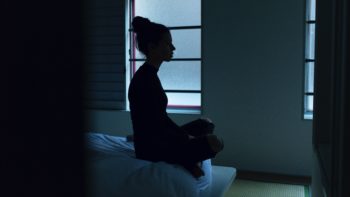In our over-scheduled and over-stimulated lives, not getting enough sleep is the least of our worries. More often than not, it’s the first thing we sacrifice when we’re faced with looming deadlines, anxiety, unexpected demands, or tasks. What’s the big deal? We’ll catch up later, right? Not so! Let’s explore the importance of sleep and game-changing strategies to help you get a good night’s rest.
Dr. Monica Vermani is a Clinical Psychologist specializing in treating trauma, stress and mood & anxiety disorders, and the founder of Start Living Corporate Wellness. She is a well-known speaker and author on mental health and wellness. Her upcoming book, A Deeper Wellness, is scheduled for publication in 2021. Please visit: www.drmonicavermani.com.
Dr. Vermani has recently launched an exciting online self-help program, A Deeper Wellness, delivering powerful mental health guidance, life skills, and knowledge that employees can access anywhere, anytime at www.
A good night’s sleep is a big deal. Sleep is when we rejuvenate, replenish and repair our bodies from the physical, mental and emotional wear and tear of the day. In a good night’s sleep, we cycle through phases of light and deep sleep. In deep sleep, we rest and repair our central nervous system, our muscles, our minds. When we’re sick, sleep helps rebuild and recharge our immune systems.
The Big Deal
Adults 18 – 60 years of age need between seven and nine hours per night regularly for ideal sleep health. Teenagers require an average of 10 hours per night, though many studies show that they are getting three to four hours less than they need. Further, a full 50 percent of Canadian adults have trouble going to or staying asleep and have difficulty staying awake throughout the day*
Insufficient sleep negatively impacts physical, mental health, job performance, and overall functionality. Insufficient sleep negatively impacts all aspects of health — from impaired cognitive and immune system functioning to irritability, anxiety, low energy, and fatigue. Long-term lack of sleep can result in an increased risk of mood disorders, and serious risks, including workplace and traffic accidents.

The Causes of Poor Sleep Hygiene
Through poor sleep hygiene, we deprive ourselves of much-needed sleep. Poor sleep habits, like eating or exercising before bed, stimulates the metabolism and, in turn, keeps us awake. Exercising before bed raises our energy levels and gets in the way of sleep. An increasingly pervasive source of poor sleep hygiene is technology. Though it may feel relaxing, binge-watching movies or TV shows on our laptops or phones, checking emails, and scrolling through Instagram and other social media just before closing our eyes over-stimulates our minds, and can keep us awake into the wee hours, rather than helping us wind down and fall asleep peacefully.
We go, go, go throughout the day. Then, overstressed and over-stimulated by our electronic devices, we jump into bed hoping for that much-needed good night’s sleep. The fact is that especially when our day has been super active, we need to make time before we go to bed to wind down and allow our bodies and minds to arrive at a place of calmness, ready for deep, quality sleep.
The Do’s and Don’ts of Winding Down
Try to be consistent with your sleep and wake times, and schedule some time to wind down before bed. Empty your mind, calm down and relax your body. In the final hour before heading off to bed, engage in relaxing activities, like a warm bath, listening to music, a body scan exercise, and meditation practice. You should not be watching stimulating TV shows or the news, be on your phone, answering emails, or ruminating and worrying about the coming day. Turn off the lights and prepare for quality sleep.
Many people complain that in bed, while they try to fall asleep, their minds often are racing with worries. If so, before bedtime grab a notepad and create a worry log. Download those concerns out of your head, and onto paper. Place this list aside and realize that you can tackle it in the light of day.

If you are not asleep within 10 to 15 minutes of going to bed, you should practice healthy sleep training practices and get out of bed and go to another room. Again, without engaging in any overly active stimulating activities in the other room, allow yourself to remain there until you become drowsy, and then go back to bed when you are wanting to sleep. You want to train your body to associate your bed to be a place for two things only, intimate recreational activities or sleep. So if you are not engaging in intimacy, your body should know that you are going to sleep.
Look at your quality of rest as a means to calm your mind, and recharge your body’s energy level for the day ahead.
Remember, sleep is not a luxury! Your health, safety, well-being, ability to function, and energy levels depend on it. Setting yourself up for a successful night’s rest will allow you to rejuvenate, repair and renew your energies, and wake with a clear mind ready to face a new day.

Dr. Vermani’s Seven Steps To A Good Night’s Sleep
Prioritize a good night’s rest in the equation of your day as an ideal day encompasses 8 hours’ work, 8 hours play, and 8 hours sleep. As much as possible, maintain consistent sleep and wake times to ensure it is a priority.
Set yourself up for sleep success. Consistent, restful sleep requires a calm, dark, and quiet environment. Since you are in bed for almost one-third of your day, make the place you sleep in pleasant, cozy, and comfortable.
Build routines that help you wind down before bed. A warm bath, time to meditate or shake off the worries of the day that’s been or is to come, whatever calms the mind.
Limit exercise and heavy meals two hours before bedtime
Turn off televisions, computers, phones at least an hour before heading off to bed.
Get up, if you don’t fall asleep within 10-15 minutes after going to bed. Go to another room and allow yourself to become drowsy and then return to bed.
Seek help for persistent sleep issues, if all else fails. Talk to your doctor about solutions like participating in an assessment at a sleep clinic to understand medical concerns that could be impacting your sleep quality. During stressful periods in life, ask for helpful psychotropic medications or supplements to manage better in the short term that may facilitate a restful night’s sleep.
Main Image Photo Credit: www.unsplash.com
Dr. Monica Vermani
Author
Dr. Monica Vermani is a Clinical Psychologist who specializes in treating trauma, stress, mood & anxiety disorders and is the founder of Start Living Corporate Wellness. Her book, A Deeper Wellness, is coming out in 2021. www.drmonicavermani.com














































































































